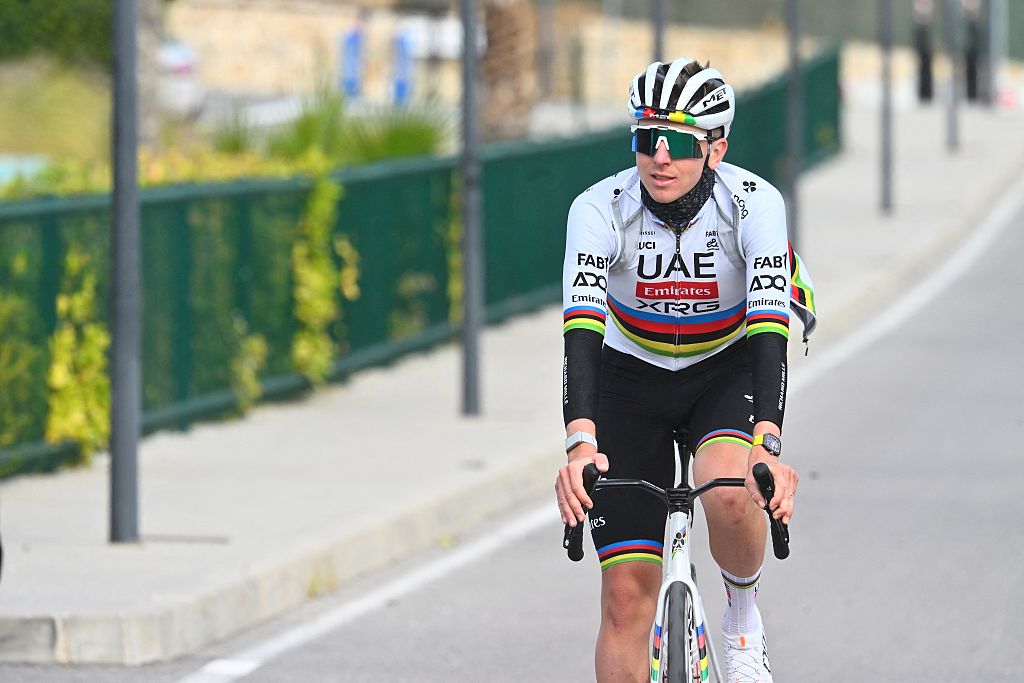Philippe Gilbert: Double Salvo
Belgian on how move to Quick-Step Floors fired him back to his best
The latest race content, interviews, features, reviews and expert buying guides, direct to your inbox!
You are now subscribed
Your newsletter sign-up was successful
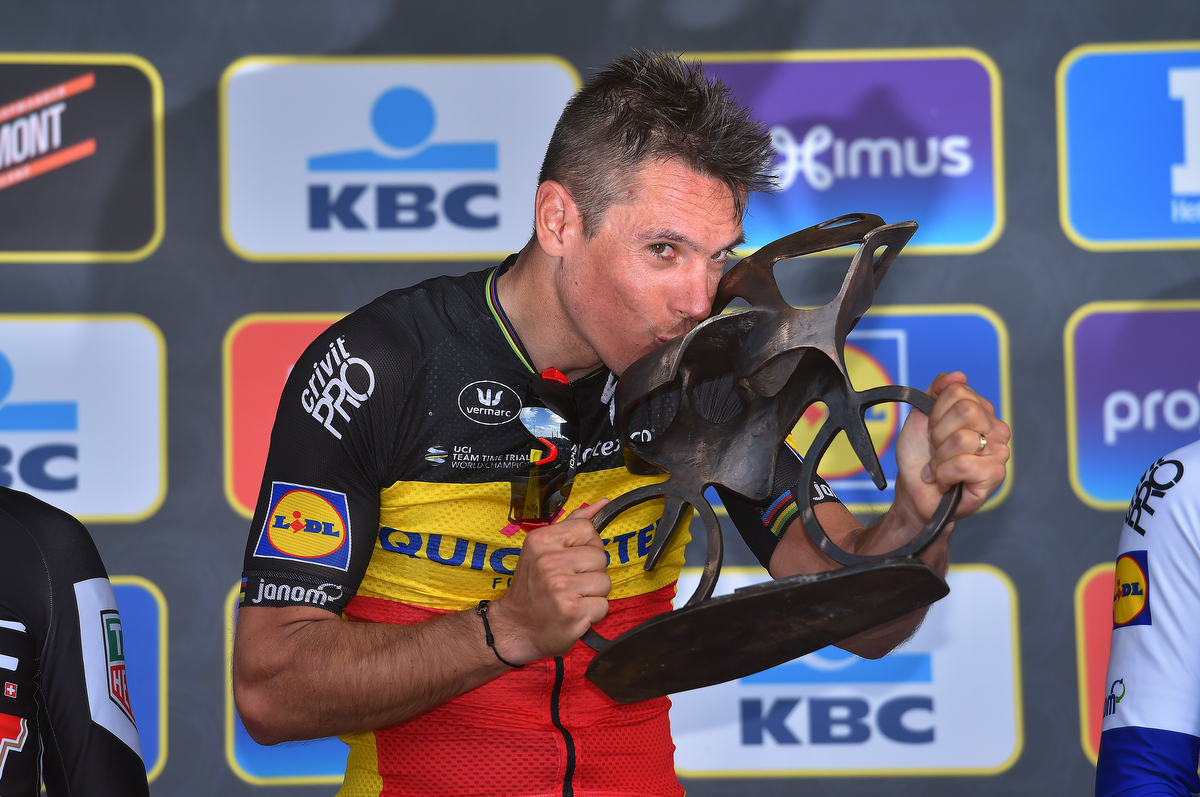
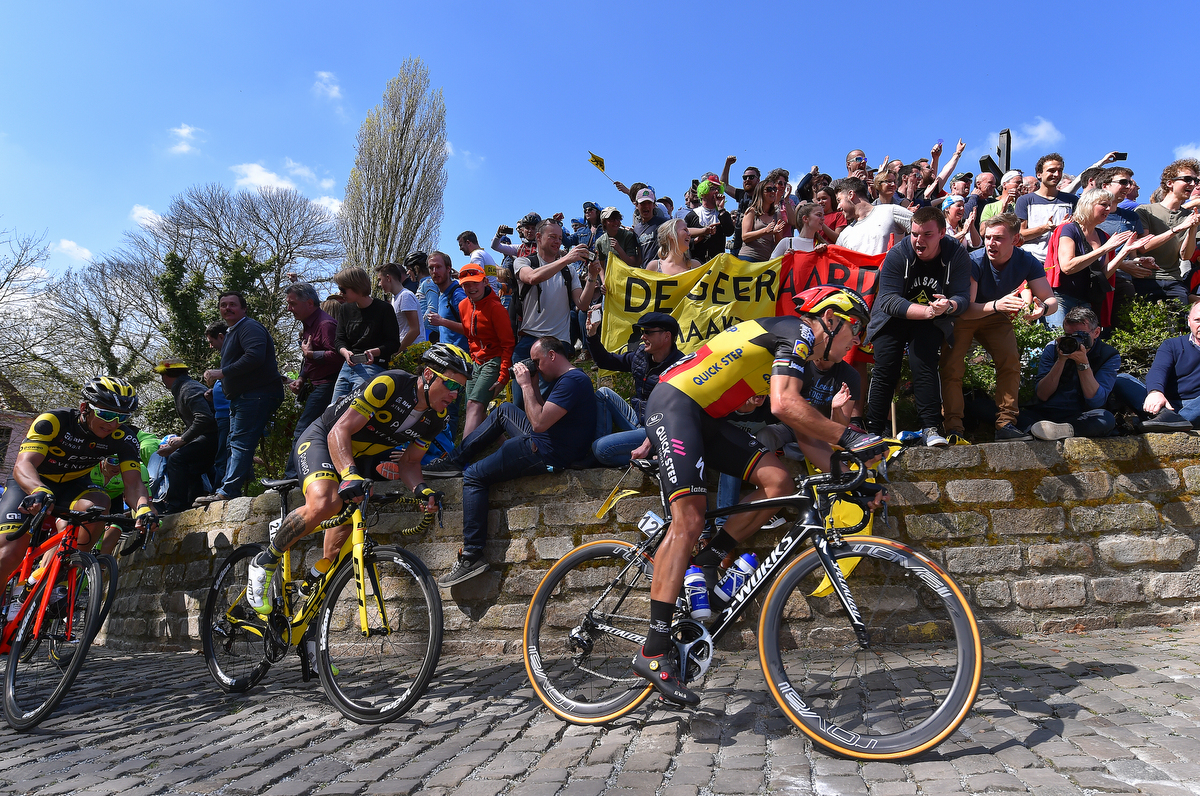
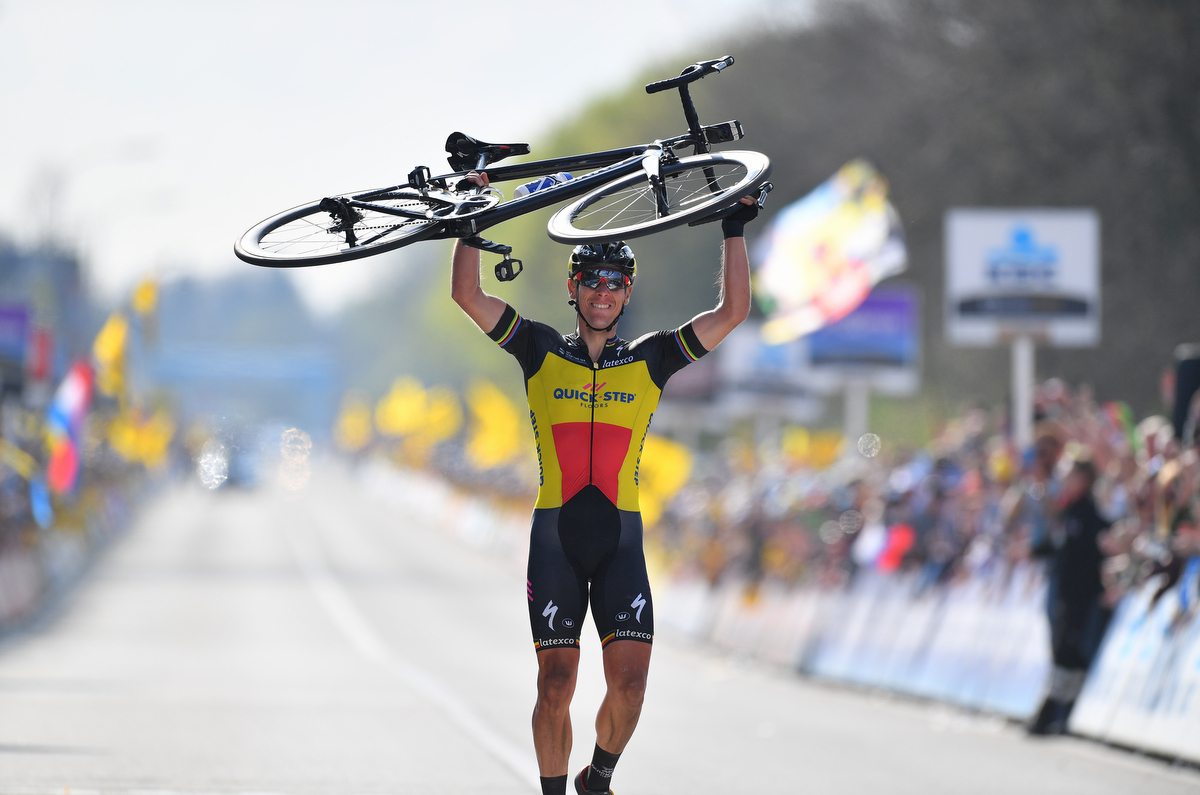
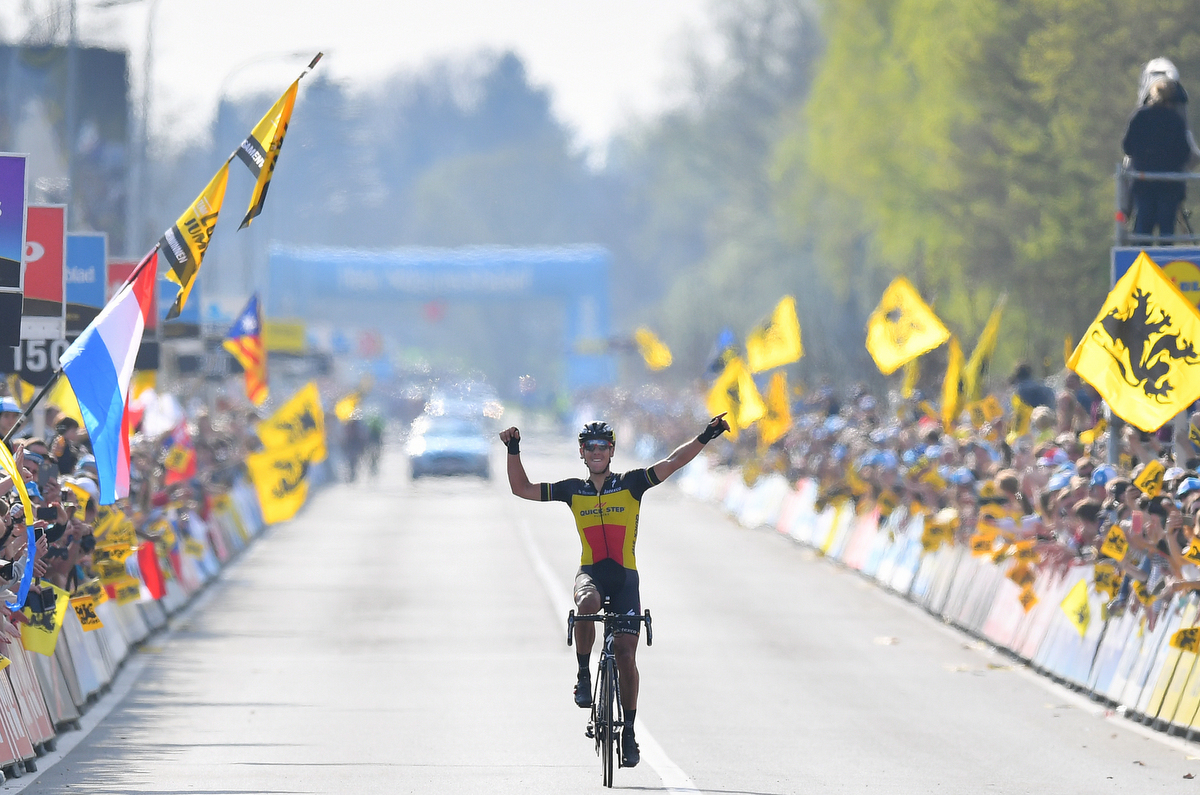
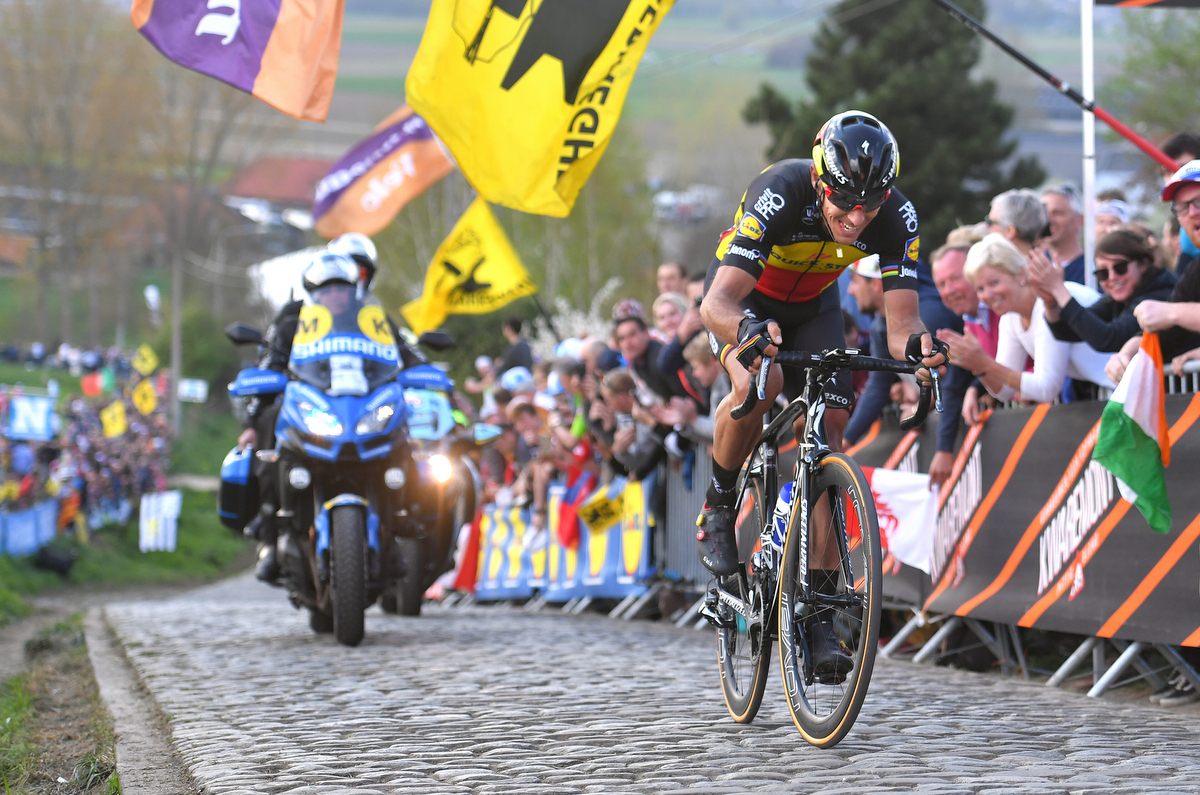
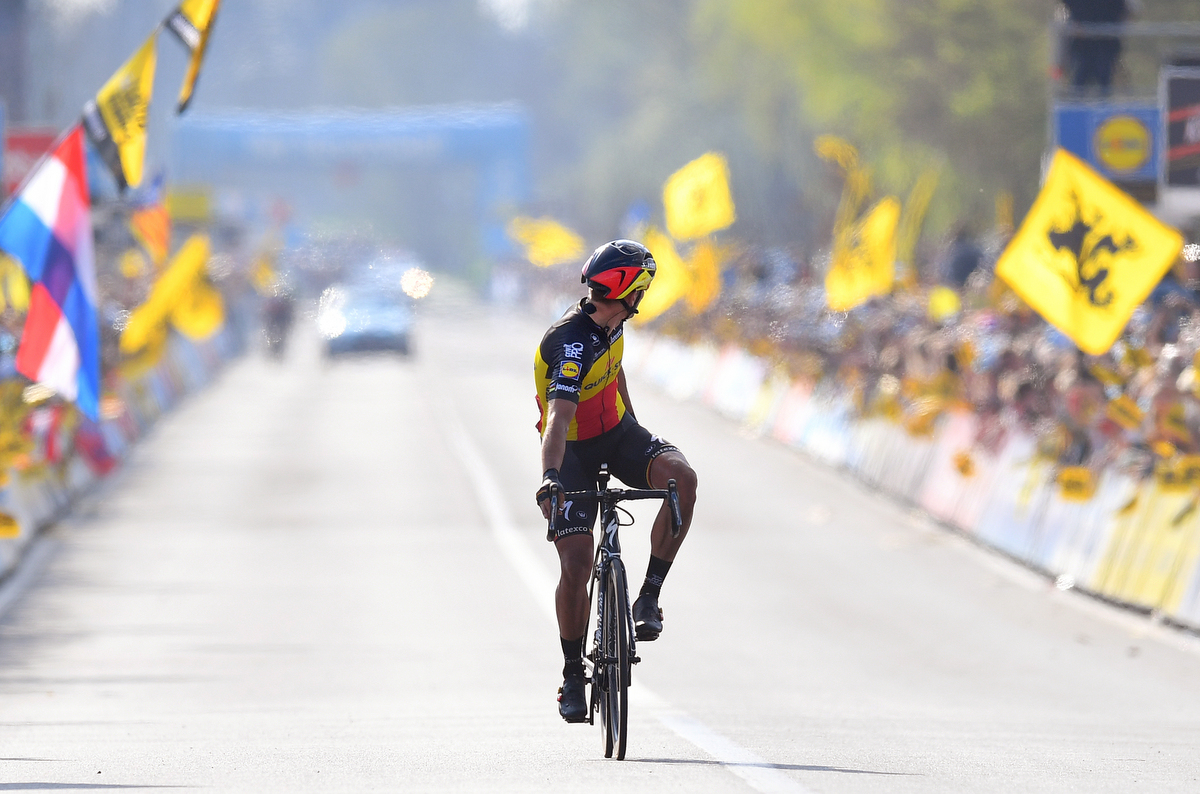
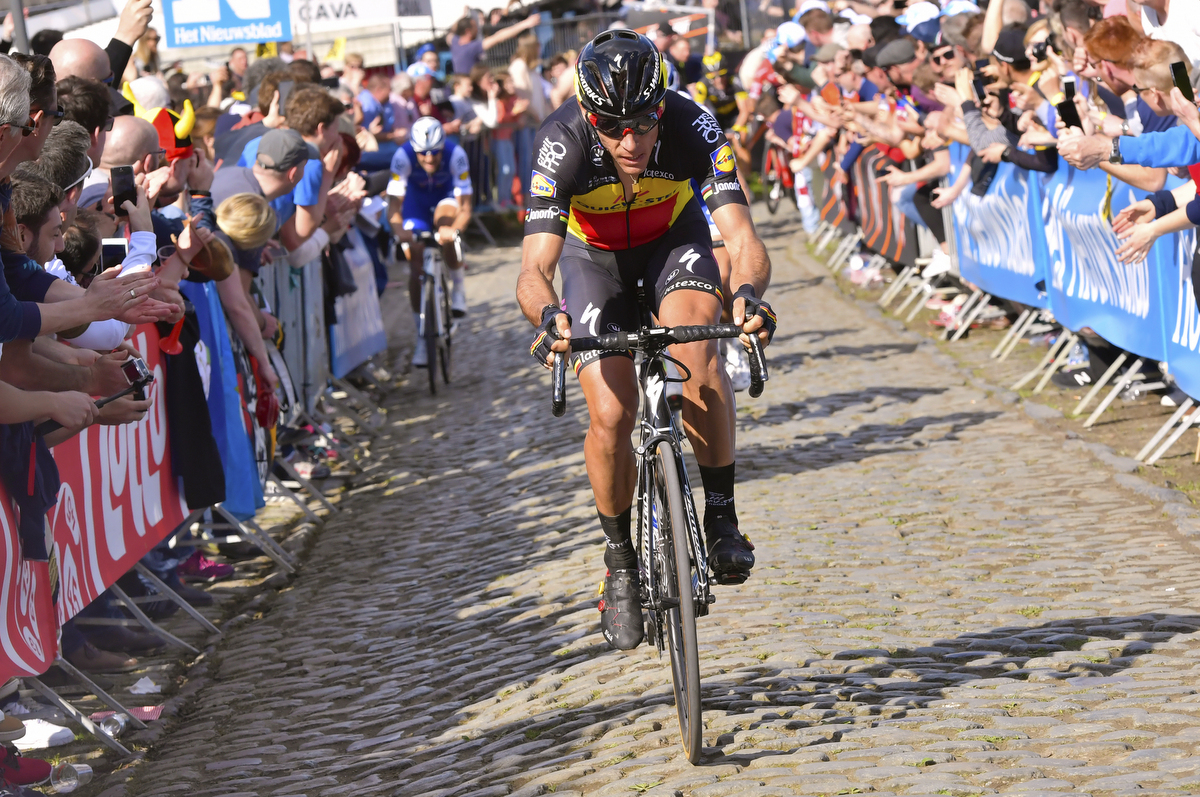
Philippe Gilbert won big races for the BMC team, but they rarely fired the imagination like his Tour of Flanders and Amstel victories did this year with Quick-Step Floors. Procycling spoke to the Walloon rider to find out how the change of scenery fired him back to his best.
Philippe Gilbert sits on his hotel balcony, taking in the Swiss view on a perfectly still Saturday evening. Before him, Lake Lucerne reflects the light blue sky, hills covered in fresh summer green and a gold bar of the setting sun. A white cruiser passes bearing an enormous red Swiss flag on the stern; the cruiser's wash laps at the shore like distant applause.
It's the evening after the Tour de Suisse prologue and other Quick-Step Floors riders file down to the water for a swim before dinner. "A 6km ride and a lake swim," Yves Lampaert, the 26-year-old Classics rider says gleefully. "The life of the pro, eh?"
After a while Gilbert nods our way, and 15 minutes later he's downstairs in his covetable Belgian national champions' skinsuit with the stripes of a former world champion on the sleeves and collar. He orders some beers and settles in, his back to the view. Life is good at the moment. The spiky short back and sides, the casual body language, the banter he exchanges with the other riders, and, later, the fooling about for the camera are the outward signs of an alpha male to whom life is currently giving a tailwind.
"Mmm. Quality," he says after taking a long draught of Feldschlösschen. It turns out he's a bit of a connoisseur; he wants Nicolas Roche, another Monaco resident, to take him to Dublin for the perfect Guinness, he jokes. Has he always enjoyed a beer or a glass or two of wine? "Always! If not, I wouldn't be a pro after 15 years with the same motivation. It's not possible. You see all the other riders. They focus for two, three four – maximum five years – and they're gone, they disappear, you know. But if you want a long-term career you need a life besides your job. There is a moment to enjoy life and a moment to be serious. You need to feel the moment." The beer did no harm. The next day, Gilbert won the bunch sprint - his fifth victory of the year.
In 2017, you'll know, Philippe Gilbert had another moment in that long and already successful career. He became the first rider in 37 years to win Flanders and Amstel in the same season. In the baldest terms possible, the events – in particular the extraordinary 50km solo to win Flanders and the victory on a revamped Amstel course with a tear in the tissue around the kidney - recalled some of his greatest hits, like the four wins in 10 days in 2009 culminating in his first Giro di Lombardia title. Or, of course, like the whole of 2011.
Five years after his miraculous 2011, which he finished with 18 wins and a career-crowning achievement of a clean sweep of Amstel, Flèche and Liège, Gilbert was unambiguously back.
The latest race content, interviews, features, reviews and expert buying guides, direct to your inbox!
"It's not that I was nowhere," Gilbert says emphatically of the five-year 'gap' between 2012 and 2016, which coincided precisely with his highly lucrative stint at BMC, valued at a reported €3m a year. "It's just that when you do a big year, like I did in 2011, everyone expects you to win again and again."
Somehow his wins at BMC – and there were 19 including a world championships, his third Amstel and five grand tour stages - seemed burnt out by the sheer glare of what happened in 2011. Maybe it was a frequency thing, as Gilbert points out. There were often long dry spells in between wins as well: the first and only shot of him winning in the World's jersey came almost a year afterwards at the 2013 Vuelta, for instance. Or because his style of winning, though very impressive, was of a kind; it was encapsulated in the nickname given him by the Dutch for his Amstel success, Mr Cauberg, for his speciality: to lurk until the final climb and then deliver an anaerobic punch that blew everyone off his wheel. There were difficult times at BMC too, like breaking his finger in an altercation with a driver and the passenger while on a training ride in April 2016, or missing out on Tour selection that year, despite winning two stages at the Giro. He vented his frustration at the team management for the oversight. They said he was still injured from a crash at Flèche.
But he informs us firmly, "I'm not here to talk about BMC." Relenting slightly, he adds, "It was just different there. That was the past and now I'm happy I'm here with this philosophy and mentality. I will never say anything bad about them."
Gilbert, according to the Quick-Step chief Patrick Lefevere, negotiated the terms of his one-year move personally. Despite Lefevere's protestations that he could not afford him, Gilbert drew up a proposal that was light on salary and heavy on win bonuses. "I like riders with ambition," Lefevere commented with satisfaction once Gilbert was firmly in a Quick-Step jersey.
Before he was even out of the BMC one at the end of last year, Gilbert was largely his own boss on the road. "I was training more by myself," he says. "I did almost the whole winter schedule until the first training camp on my own. I was my own coach, kind of."
Quite clearly the two parties had clicked and even before he won Flanders, Gilbert told Belgian media he wanted another two-year deal with the squad.
For the Belgian cycling fan, it united the peerless Wallonian puncheur with the outgoing king of the Flanders cobbles, Tom Boonen. "I think we're pretty similar in out approach to racing," says Gilbert. "Pretty aggressive, though Tom was able to count more on the sprint than I was. But when you see him racing, he was always trying to come home alone even if he could win in the sprint. Panache, you know."
More generally the team's modus operandi suits him too. "We always have a chance to win with a couple of us; we're always trying to make something happen," he says. "It's not always on one guy, so it gives you the possibility to try from far out, and if you miss that, you don't f*ck up the team because there's someone else ready to counter. We always have another chance."
He reaches back into his career for a comparison. "It was the same thing in Lotto with André Greipel. I was able to attack and then do less in the final because I could say, 'I have a sprinter behind, so if you want to stay away - ride!'"
The degree of latitude afforded him has continued for the experienced 35-year-old. He now says he works only a "little bit" with Tom Steels, one of the Quick-Step sports directors. "I just ask him sometimes for confirmation and ideas but I do almost everything by myself. I like it," he says smiling.
"When you feel good in training then you feel ready to race and compete so that's a big part of success," he elaborates. "If you feel ready it's half the win, you know, so it's helped a lot. When I joined, I knew pretty much everyone except the young guys. Also the staff, and that made it a lot easier. Plus the Belgian mentality – as a Belgian it's always easier to fit in. There's a lot of love for the classics here."
Gilbert has had a long affair with the Tour of Flanders: Twice third, once ninth before this year. At BMC, his repeated requests to be selected for the race fell on deaf ears as the Swiss-US squad enforced a fairly strict division of labour between Gilbert and Greg Van Avermaet at the spring classics: Gilbert for the hills; Van Avermaet for the cobbles. At Flanders, the policy was breached just once prior to 2017, in the first year of their cohabitation.
Gilbert is a collector. Rather than multiple wins he's more interested in filling gaps in his palmarès than retreading old ground. "I said my goal was clear from the start of the season: it was Flanders and then I go to the Ardennes with what's left in the tank. I worked for months with this race in mind. All the sacrifice I did was for this day. When you work so much for one event it makes you stronger too."
There was a lot of Gilbert's red, yellow and black national champion's jersey about this Flandrian spring. He served notice of his gathering form at Dwars door Vlaanderen, when he attacked with 75km to race and led home a group sprint for second. In E3, he went with 65km left to race and kicked again with 40km, forcing a definitive selection. Second again. On stage 1 of the Three Days of De Panne, he initiated hostilities on the Muur, 45km from the line, kicked again on the second ascent and won solo. In the 10 days before Flanders he spent about 185km on the attack. "Always in a small group, four guys maximum, so you go deeper and give a lot of effort," he says.
When he disappeared up the road on the second ascent of the Oude Kwaremont with 55km to go in Flanders – after Quick-Step had already isolated several rivals 40km earlier on the Muur - the others should have been on red alert.
Gilbert's subsequent win stirred hearts in a way that he had struggled to for a while. It felt like the rediscovery of a forgotten aspect of his repertoire: the long-range solo attack. That had first revealed itself in the 2006 Dauphiné when he attacked a small group with 35km to go and won by more than five minutes. It was even more reminiscent of his 50km attack to win Het Volk in 2008. "My best win so far," he said at the time.
Returning to his Flanders victory he reports that all along the race's winding lanes, he felt that people wanted him to win. "I've always been aggressive and I was back in that way of racing. I think they were happy that I was back," he adds.
For the final 50km, Gilbert's lead hovered between 55 and 60 seconds over a chase group that came down to three: Van Avermaet, Peter Sagan and Oliver Naesen. Gilbert reports a mental battle between him and the chasers. "With a one minute gap, they see you before the descent to the Kwaremont. On the Kwaremont, I knew they didn't see me because I went really full gas to try and crack them in the head. I knew if I came out of the cobbles with the same gap, they would start to think.
"I knew the finish was pretty much at the top of the Kwaremont, so I went really full gas there. And then they crashed."
In a race that had as many twists and turns as the route itself, the crash caused by Sagan hooking a spectator's jacket draped over the barriers as he rode on the extreme left over the Kwaremont and pulling down Van Avermaet and Naesen in the process became pivotal.
"I pushed them into the mistake," he insists. "They had been at full gas behind me for more than an hour. They took back one or two seconds and then I took five or six. I know the feeling when you're riding behind someone – you don't see what's happening in front so you ride full gas. When you don't come back, you think, 'What's wrong' and then you start to think you really have to go harder. Then you start to take all the risks."
There was nevertheless debate, or as Gilbert described it to Belgian magazine Humo, "Lots of blah-blah". Sagan and Naesen both believed they would have caught him. Van Avermaet said the race was "not over until that point". In Humo, Gilbert said he was "disappointed" by their reaction. He won't elaborate.
"They were questioned five minutes after the race and maybe in the first moments they say this out of frustration," he says. "If someone showed them the video maybe they don't say the same thing. It's like this and I don't care!"
Asked if he feels he lost out on earlier chances to win Flanders, Gilbert is unequivocal. "Yeah. Yeah. But life's like that." When he was with Omega Pharma-Lotto, he finished third in 2009 and 2010. But it is 2011, the year he finished ninth, that he believes was the one that got away.
"I had the win in my legs but I made a mistake by going too early, too hard, on the Bosberg. I killed myself there. If I had waited a few seconds more I would have won," he says. That race was constantly changing shape and he was caught with 8km to go, so it's a bold claim, but he's convinced. He's confident like that.
Gilbert skipped Roubaix this spring to take what was left of his purple patch to the hilly Classics. "I wanted to give everything for the Flemish Classics; that's what I did."
Despite an early crash in Amstel Gold that caused a slight tear to the tissue around the kidney and kept him out of subsequent races, Gilbert triumphed on a course that had been reworked so that the final climb came 7km from the end. Even after he had escaped with Sky's Michal Kwiatkowski - on paper a slightly better sprinter, perhaps - Gilbert was ice cool even as he led from 700m to 350m and allowed the Pole to sprint into and out of his slipstream before clawing him back.
"You win races and it gives you confidence, the right to lose," Gilbert explains. "Because when you still expect the big win, you put a lot of stress on yourself and you always think, 'Now it's coming, I have the chance to win so I must not lose.' But that's always the one you miss. When you have won a lot of Classics already, you just know how to do it and you decide which way you're going to do the final. It's easier."
Gilbert has often been invited to speculate on whether his all-round talents could help him become the first rider in the modern era to win all five monuments. In 2015, he told Procycling he was convinced that his lack of experience at Paris-Roubaix was a minor impediment and he could accrue the necessary craft with a few training sessions and watching past editions on YouTube. "When I see the races on TV, I'm sure even if I started Roubaix I'm not less than these guys," he said at the time.
When his two-year extension was announced in the aftermath of the Tour, in which he packed with a bout of stomach problems, he revived the notion that he could become the first rider since Roger De Vlaeminck to win the big five one-day races. "I am sure I can still win some big races and that I will get my chances," he says. "It would be a dream come true to win races like Paris-Roubaix and Milan-San Remo with this team. That's also one of the reasons I wanted to sign for two more years, to build up and increase my chances."
He'll be 37 by the time this contract is up. Time is against him and Milan-San Remo and Roubaix are surely at the outer limits of what his physical attributes allow him to achieve now. But then it looked like the door was shutting on Flanders too, until he pulled off the heist of his career.
Because all Gilbert wants is attention. "People talk in a good way and a bad way about you and that's a good sign," he tells us when asked if he cared people may have written him off. "It means that you exist in their eyes. If they still speak about you it means you are doing something, so you always have to take this as motivation." Come this winter it's fair to say he'll be pulling out all the stops for the remaining goals of his career. That Guinness in Dublin may have to wait.
Procycling October 2017 is available in all good newsagents. To subscribe, click here
Sam started as a trainee reporter on daily newspapers in the UK before moving to South Africa where he contributed to national cycling magazine Ride for three years. After moving back to the UK he joined Procycling as a staff writer in November 2010.
